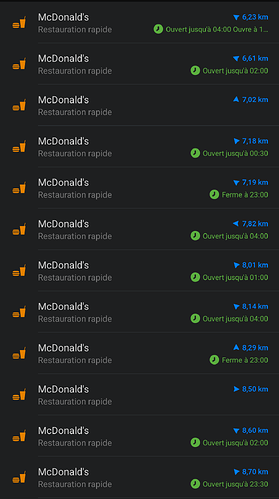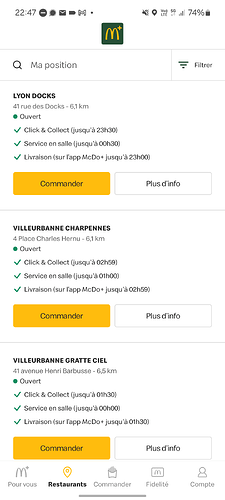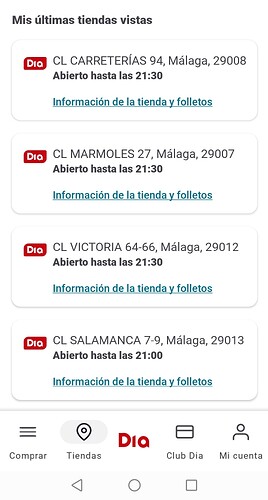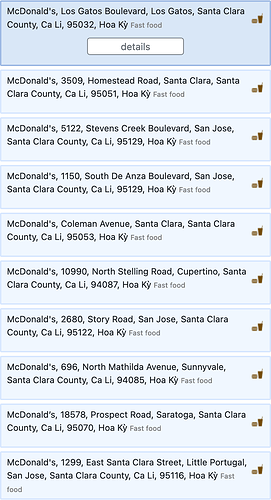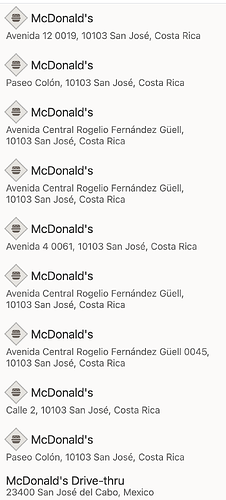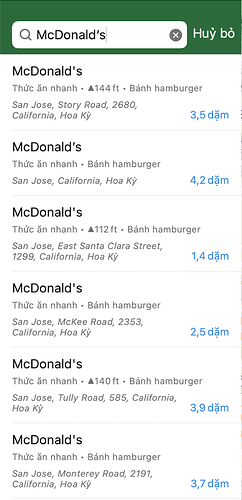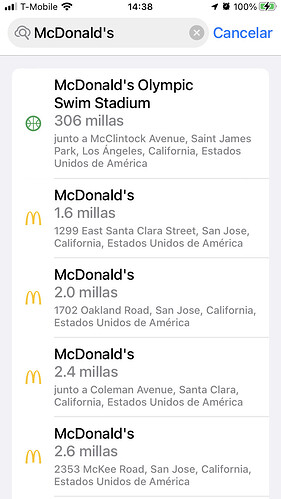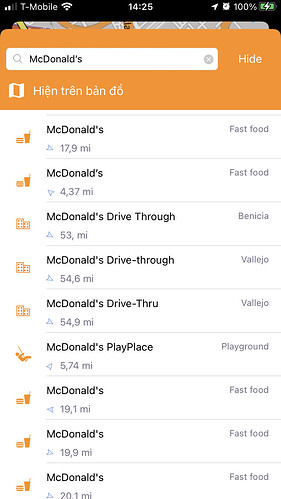Moving to name=brand+branch will just break any real chance of OSM becoming truly multilingual.
I don’t see why, care to explain why removing names in favour of brands in name=* would break multilinguism ?
I’m no fan of the extreme “name is what’s on the door”, but this is the extreme in the opposite direction.
No extremes here, just respecting core OSM values shared by most, including those who disagree with me : do not map for the renderer, map what’s “on the ground”/“verifiable” etc.
But you seem to be saying that “the name used by everyone” is never the same as the brand.
The initial way I worded it was not good. But that’s not what it conveyed : use the full name [if available], not just the brand.
For example, what would you say is the name of the individual supermarkets operated by Día in Spain, as shown here in their own app?
Once again, if my previous messages were not clear enough, I never said absolutely absolutely all chains in all countries have unique public names for stores. That would be presumptuous. There is a lot that have unique public names, and at least a few without were shared.
the proscription against using brands in names is prescriptive, not descriptive, and not good documentation.
I agree. That’s not what was intended, see above.
I would also very lightly suggest that ~10 opinions represents a small discussion and should not be treated as a wider agreement than that.
Agreed. Just like what NSI decided, and what original authors of Name pages decided too.
I don’t think we can necessarily say that disambiguating results [by address] would be too costly to implement
Nobody said that.
which includes a subtitle on the right side of each result that disambiguates it from other results
Yes it’s OSMAnd, and no it doesn’t disambiguate. It indicates the city, which may or may not suffice. In city centers, it wouldn’t. But the name would, as it’s its function, when available.
Arguably this is a bug in a particular data consumer, which isn’t a great argument in favor of changing how one of OSM’s most common keys is defined
I agree that CjMalone, Mateusz and Minh_Nguyen should not change the meaning of names to brands.
I however did not advocate for any change on the definition, just explained what a name is, and while people often use brands in lieu of names by convenience, when asked for the name of a place in particular they will answer with the name and not just the brand.
